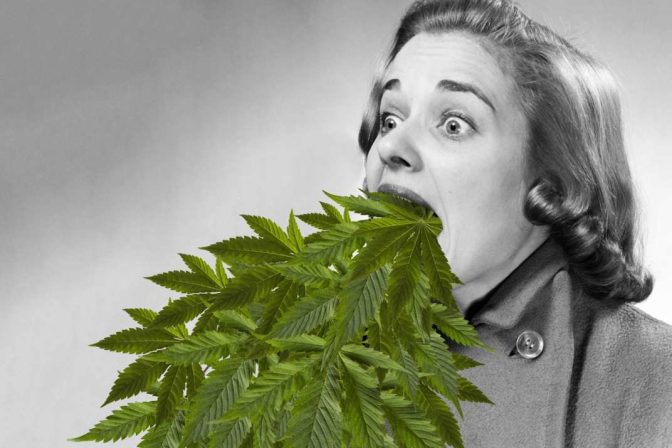The Skinny on Cannabis Hyperemesis Syndrome

Cannabis hyperemesis syndrome (CHS) is a rare consequence of long-term (usually 10-plus years), heavy, daily cannabis use, characterized by nausea, vomiting and abdominal pain. The symptoms are often temporarily relieved by hot baths or showers, or in the long term, by stopping use altogether.
CHS symptoms are often confused with cyclic vomiting syndrome (CVS), which usually affects children. The two conditions are related, but CHS goes away after cessation of cannabis use.
You might be asking, “But I thought cannabis was supposed to prevent nausea and vomiting?” The theory so far is that CB1 agonism (cannabinoids binding to the CB1 endogenous-cannabinoid receptor in the brain and activating it) stops vomiting, and CB1 inverse agonism (binding to the receptor, but causing an opposite action) promotes vomiting. This may be true for some, or even most people, but it’s not true for everyone.
“The mechanism by which cannabis, a product commonly regarded as an antiemetic, causes cyclic vomiting in some persons after a prolonged use is not known,»Leon Gussow M.D. writes in Emergency Medical News. «Because cannabinoids are lipophilic and have long half-lives, they may accumulate with chronic heavy use to the point where they start to exert a paradoxical effect… Any of the 60 different compounds contained in raw marijuana might directly affect the limbic system or hypothalamus in ways that have not yet been defined.”
The onset of CHS may be due to issues with the body’s endocannabinoid system and the cannabinoids themselves. This 2004 study based on shrews suggests that THC suppresses vomiting, while higher doses of CBD enhance the likelihood of vomiting. This makes sense, since CBD is a antagonist, suppressing the receptor’s activation.
The number of people going to hospitals for CHS increased after state adult-use legalization began to take effect in 2013. Some have posited that this is because of the high potency of dabs and edibles, but there’s little evidence of that so far. Pesticides and pathogens, such as mold spores, may also be a cause, but this can be avoided by proper regulation and going to the right dispensaries.
Since CHS is so rare, I’d also be careful of misdiagnosis. Other gastrointestinal problems may be at play, and cannabis could be either helpful or hindering in such cases. As with so many potential issues with long-term cannabis use, we just don’t have enough data to draw any hard conclusions.

